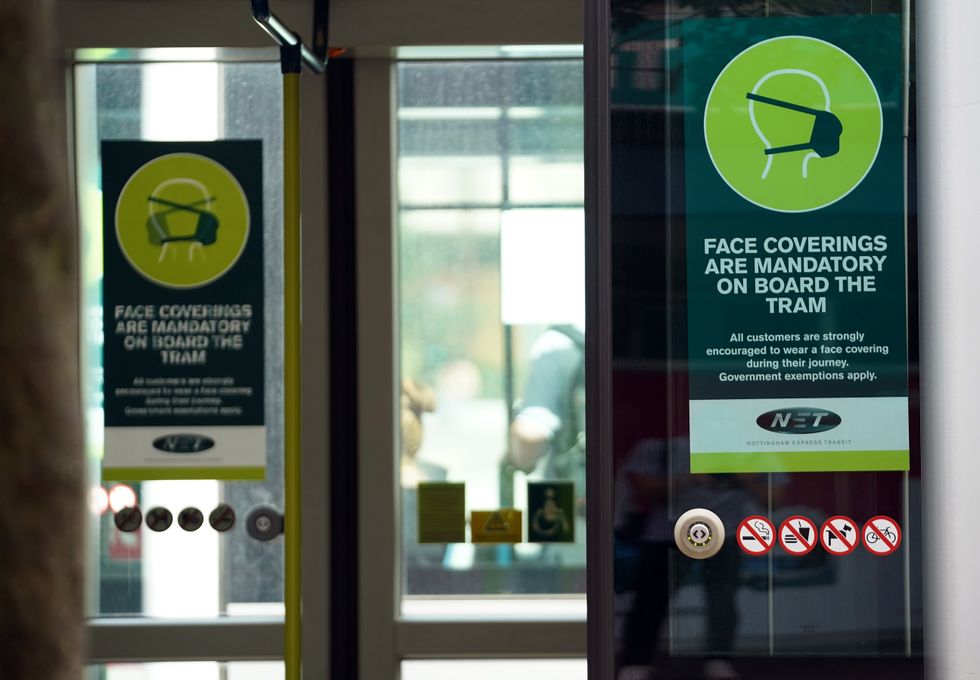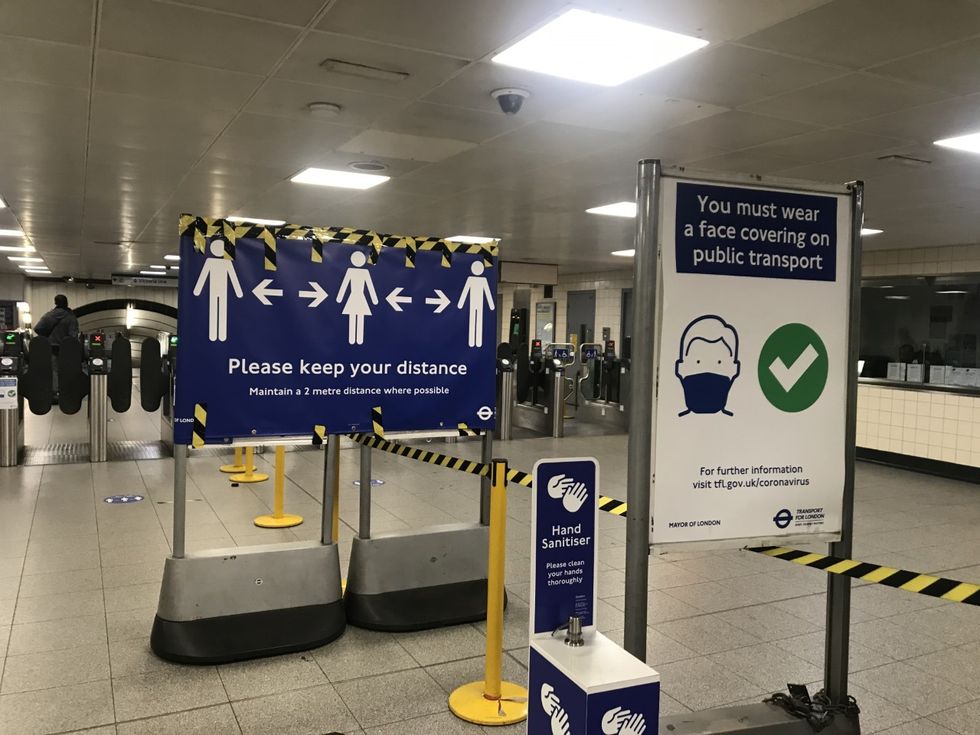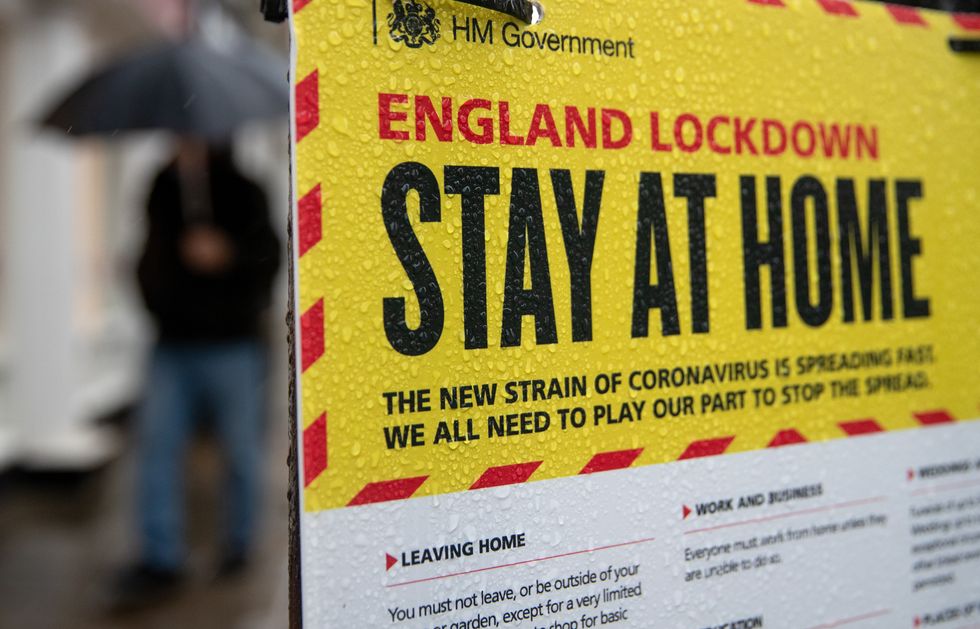New poll reveals FIFTH of the public would support bringing back Covid measures
PA
Research from More In Common has found millennials are the most likely to back restrictions
Don't Miss
Most Read
Trending on GB News
New polling has suggested that around a fifth of the British public would back the return of Covid measures.
Research from campaign group More In Common polled 2,033 people between November 30 and December 4 asking about if they would back some form of Covid measures.
The question asked was "Currently, there are no legal Covid-19 restrictions in place in the UK. Thinking of the current health situation in the UK, would you support or oppose the Government re-introducing each of the following Covid-19 restrictions at the current time?"
Polling revealed 45 per cent supported, with 16 per cent saying they strongly supported, having to wear face masks on public transport, with eight per cent strongly supporting the rule of six, limiting the amount of people who can meet outside.
WATCH NOW: Barrister Steven Barrett speaks to Good Afternoon Britain about the Covid Inquiry
According to the poll, millennials (aged 25-40) are the most likely to back restrictions with a third of millennials backing closing night clubs, and three in ten backing re-introducing the rule of six.
Gen Z (aged 18-24) were more supportive to the closing of nightclubs than Gen X (aged 41-55) and Baby Boomers (aged 56-74). 31 per cent of Gen Z supported closing nightclubs, with 27 per cent for both Gen X and Baby Boomers,
The Silent Generation (aged 75+) were the least supportive on restrictions on meeting in groups more than six, with just 18 per cent supporting and 78 opposing it.
Closing of restaurants and pubs was supported by 25 per cent of both Gen Z and Millennials. This is compared to 17 per cent for Baby Boomers and just 12 per cent for The Silent Generation.

Face masks were mandatory on board public transport, such as the tram network in Nottingham
PA
Regionally, Greater London was the area with the most support for lockdown restrictions, with 52 per cent backing the wearing of masks on public transport and 36 per cent in favour of closing nightclubs.
Different areas of the UK were more opposed to different restrictions. Wales was the area most opposed to closing of pubs with 78 per cent opposing closing pubs.
The East of England was the most opposed to the return of the rule of six at 75 per cent being opposed to it.
The restriction of "only allowing people to leave their homes for essential shopping, 60 minutes of exercise, and work" was most opposed by Scotland, with 76 per cent opposing the restriction.

The poll found that 51 per cent of those asked who voted for Labour in the 2019 General Election supported the reintroduction of masks being worn on public transport. 41 per cent opposed it.
This is contrasted to the Conservatives, with 45 per cent supporting the restriction for masks on public transport being brought in, against 52 who were opposed to it.
The closure of nightclubs has more support from 2019 Labour voters (32 per cent) compared to 2019 Conservative voters (29 per cent).
Meanwhile, more Tory 2019 voters opposed the closure of pubs than Labour and the Lib Dems. 77 per cent of Conservatives opposed the restriction on pubs opening compared to 73 per cent of Lib Dems and 68 per cent from Labour.

2019 Labour voters were more supportive of lockdown measures returning
Getty
More in Common UK director Luke Tryl said: "Support for bringing back restrictions is highest among our Loyal National segment - the group that is the closest to matching Red Wall voters. Four in 10 back closing night clubs, nearly six in 10 want mandatory masks back.
"Worth saying, (and I think there is a mismatch that makes more engaged people find this hard to understand), Do qual on this and you find is a sizeable minority group of people who quite liked lots of aspects of lockdown (not the pandemic itself, but the lifestyle).
"On the difference between revealed/stated preference on masks.
"Again do qual and you find people on a range of issues want clear rules which don't rely on personal choice (ditto on climate) lots of people would just like things banned rather than it left to their individual choice."








